Related Research Articles
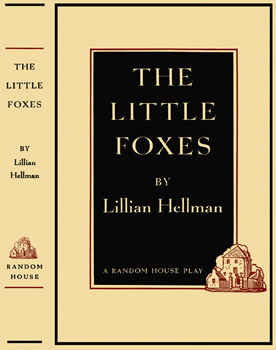
The Little Foxes is a 1939 play by Lillian Hellman, considered a classic of 20th century drama. Its title comes from Chapter 2, Verse 15 of the Song of Solomon in the King James version of the Bible, which reads, "Take us the foxes, the little foxes, that spoil the vines: for our vines have tender grapes." Set in a small town in Alabama in 1900, it focuses on the struggle for control of a family business. Tallulah Bankhead starred in the original production as Regina Hubbard Giddens.

Adele Astaire Douglass, was an American dancer, stage actress, and singer. After beginning work as a dancer and vaudeville performer at the age of nine, Astaire built a successful performance career with her younger brother, Fred Astaire.
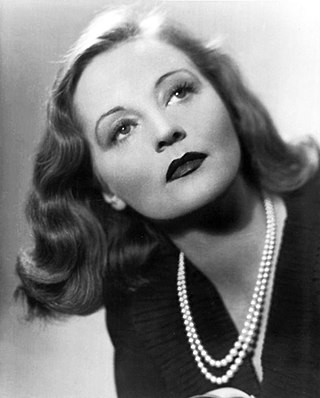
Tallulah Brockman Bankhead was an American actress. Primarily an actress of the stage, Bankhead also appeared in several prominent films including an award-winning performance in Alfred Hitchcock's Lifeboat (1944). She also had a brief but successful career on radio and made appearances on television. In all, Bankhead amassed nearly 300 film, stage, television and radio roles during her career. She was inducted into the American Theater Hall of Fame in 1972 and the Alabama Women's Hall of Fame in 1981.

Gay Divorce is a musical with music and lyrics by Cole Porter and book by Dwight Taylor, adapted by Kenneth Webb and Samuel Hoffenstein. It was Fred Astaire's last Broadway show and featured the hit song "Night and Day" in which Astaire danced with co-star Claire Luce.

The Big Show was an American radio variety program featuring 90 minutes of comic, stage, screen and music talent, that was aimed at keeping American radio in its classic era robust against the rapidly growing television tide. For a good portion of its year-and-a-half run, the show's quality made its ambition seem plausible.
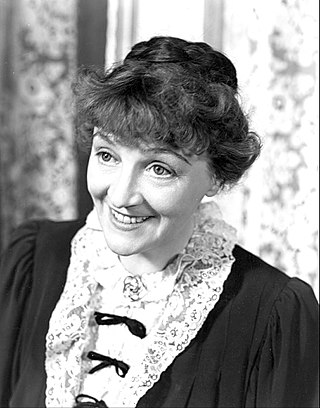
Eileen Cecilia "Patricia" Collinge was an Irish-American actress and writer. She was best known for her stage appearances, as well as her roles in the films The Little Foxes (1941) and Shadow of a Doubt (1943). She was nominated for an Academy Award and won a NBR Award for The Little Foxes.

The Passing Show of 1918 is a Broadway musical revue featuring music of Sigmund Romberg and Jean Schwartz, with book and lyrics by Harold Atteridge. The show introduced the hit songs "I'm Forever Blowing Bubbles" and "Smiles".

Two's Company is a musical revue with principal sketches by Charles Sherman and Peter DeVries, principal lyrics by Ogden Nash and Sammy Cahn, and principal music by Vernon Duke.
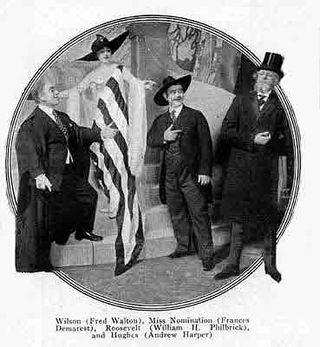
The Passing Show of 1916 is a revue featuring the music of Sigmund Romberg and Otto Motzan, with book and lyrics by Harold Atteridge. It included the first George Gershwin songs introduced in a Broadway show.

Julia Eliza Bruns was an American stage and silent film actress and model. Bruns came to prominence for her work as a model. Her image was illustrated by artist James Montgomery Flagg in 1917. She appeared on numerous magazine covers and Sunday feature pages.
The Alabama Stage and Screen Hall of Fame was founded in 1998 for the purpose of honoring Alabamians who have made significant contributions to film, television or theatre. The organization is sponsored jointly by Theatre Tuscaloosa and Shelton State Community College in Tuscaloosa, Alabama.

Mary Eugenia Rawls was an American actress.

The Little Foxes is a 1941 American drama film directed by William Wyler. The screenplay by Lillian Hellman is based on her 1939 play The Little Foxes. Hellman's ex-husband Arthur Kober, Dorothy Parker and her husband Alan Campbell contributed additional scenes and dialogue.
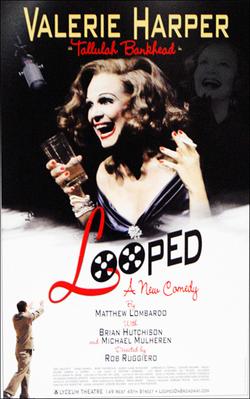
Looped is a play by Matthew Lombardo about an event surrounding actress Tallulah Bankhead. It had a Broadway run in 2010, after two previous productions in 2008 and 2009, all three of them featuring Valerie Harper.

The Passing Show was a musical revue in three acts, billed as a "topical extravaganza", with a book and lyrics by Sydney Rosenfeld and music by Ludwig Engländer and various other composers. It featured spoofs of theatrical productions of the past season. The show was presented in 1894 by George Lederer at the Casino Theatre. It was one of the first musical revues on Broadway and led the fashion for such productions. The Casino Theatre produced a revue each summer thereafter for several seasons.
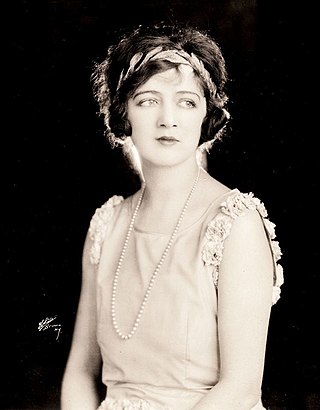
Alma Tell was an American stage and motion picture actress whose career in cinema began in 1915 and lasted into the sound films of the early 1930s.
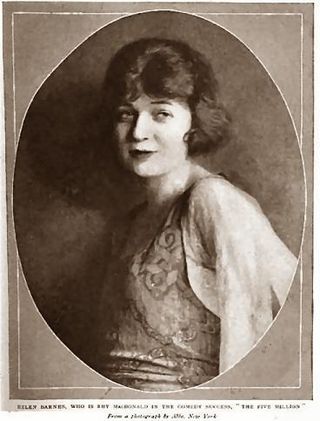
Helen Gertrude Barnes was an American musical comedy actress and Ziegfeld Follies Girl.
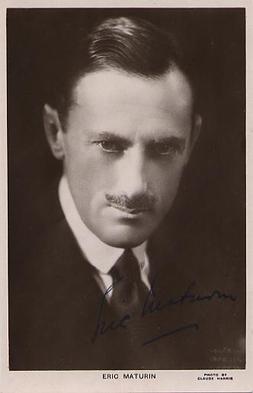
Eric Bagot Maturin was a British actor whose acting career began in 1905 and whose first film appearance was in 1919 during the era of silent films.
Albert Sidney Angeles was a theatre actor and director of silent films. Born in London, he worked in the USA as a writer and director for Vitagraph, later directing for Universal.
39 East is a play in three acts by dramatist Rachel Crothers. The work set in New York City at a boarding house and in Central Park, and is based on Crothers own life experience moving to New York and living in a boarding house while pursuing a career as an actress.
References
- 1 2 3 "Squab Farm Review". The Evening Journal. March 6, 1918. p. 7 – via newspapers.com.
- ↑ "The Squab Farm Broadway @ Bijou Theatre - Tickets and Discounts".
- 1 2 Bankhead, Tallulah (1952) Tallulah: My Autobiography. Harper and Brothers. pg. 62
- ↑ "Movie Local Color in 'The Squab Farm'". The New York Times, May 14, 1918; pg. 11
- ↑ Westover, Jonas (October 4, 2016). The Shuberts and Their Passing Shows: The Untold Tale of Ziegfeld's Rivals. Oxford University Press. ISBN 978-0-19-021925-3 – via Google Books.